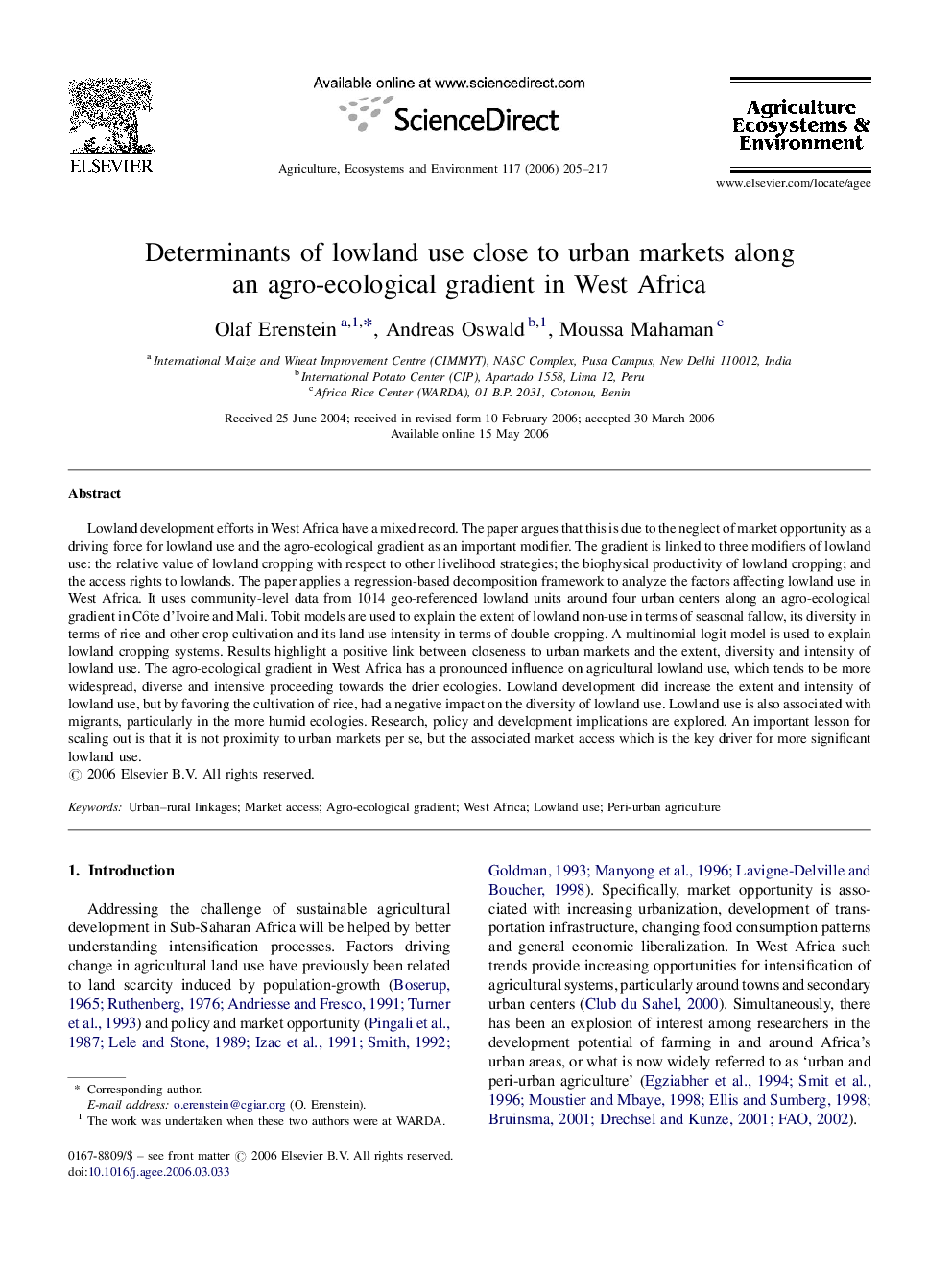| Article ID | Journal | Published Year | Pages | File Type |
|---|---|---|---|---|
| 2415946 | Agriculture, Ecosystems & Environment | 2006 | 13 Pages |
Lowland development efforts in West Africa have a mixed record. The paper argues that this is due to the neglect of market opportunity as a driving force for lowland use and the agro-ecological gradient as an important modifier. The gradient is linked to three modifiers of lowland use: the relative value of lowland cropping with respect to other livelihood strategies; the biophysical productivity of lowland cropping; and the access rights to lowlands. The paper applies a regression-based decomposition framework to analyze the factors affecting lowland use in West Africa. It uses community-level data from 1014 geo-referenced lowland units around four urban centers along an agro-ecological gradient in Côte d’Ivoire and Mali. Tobit models are used to explain the extent of lowland non-use in terms of seasonal fallow, its diversity in terms of rice and other crop cultivation and its land use intensity in terms of double cropping. A multinomial logit model is used to explain lowland cropping systems. Results highlight a positive link between closeness to urban markets and the extent, diversity and intensity of lowland use. The agro-ecological gradient in West Africa has a pronounced influence on agricultural lowland use, which tends to be more widespread, diverse and intensive proceeding towards the drier ecologies. Lowland development did increase the extent and intensity of lowland use, but by favoring the cultivation of rice, had a negative impact on the diversity of lowland use. Lowland use is also associated with migrants, particularly in the more humid ecologies. Research, policy and development implications are explored. An important lesson for scaling out is that it is not proximity to urban markets per se, but the associated market access which is the key driver for more significant lowland use.
